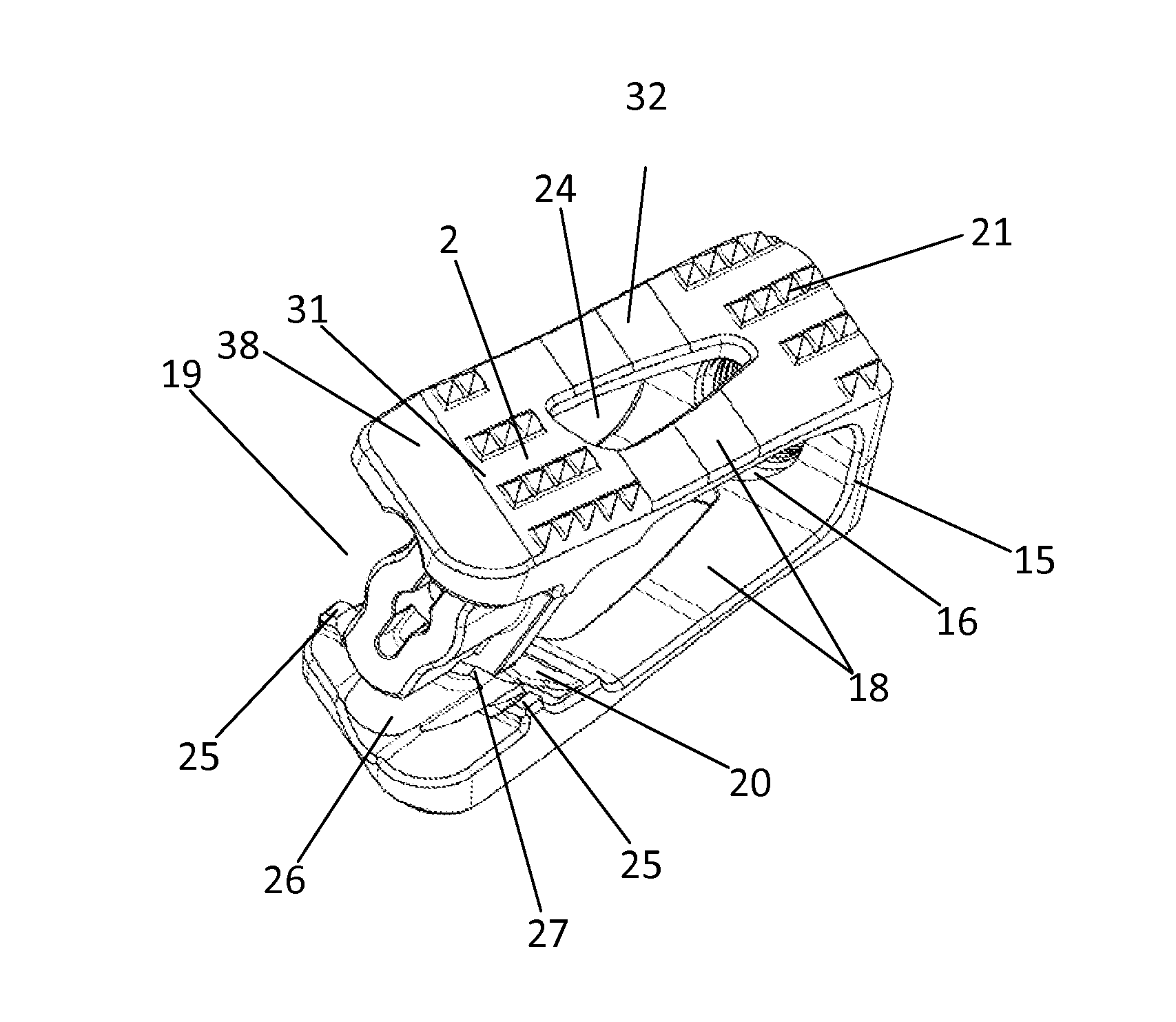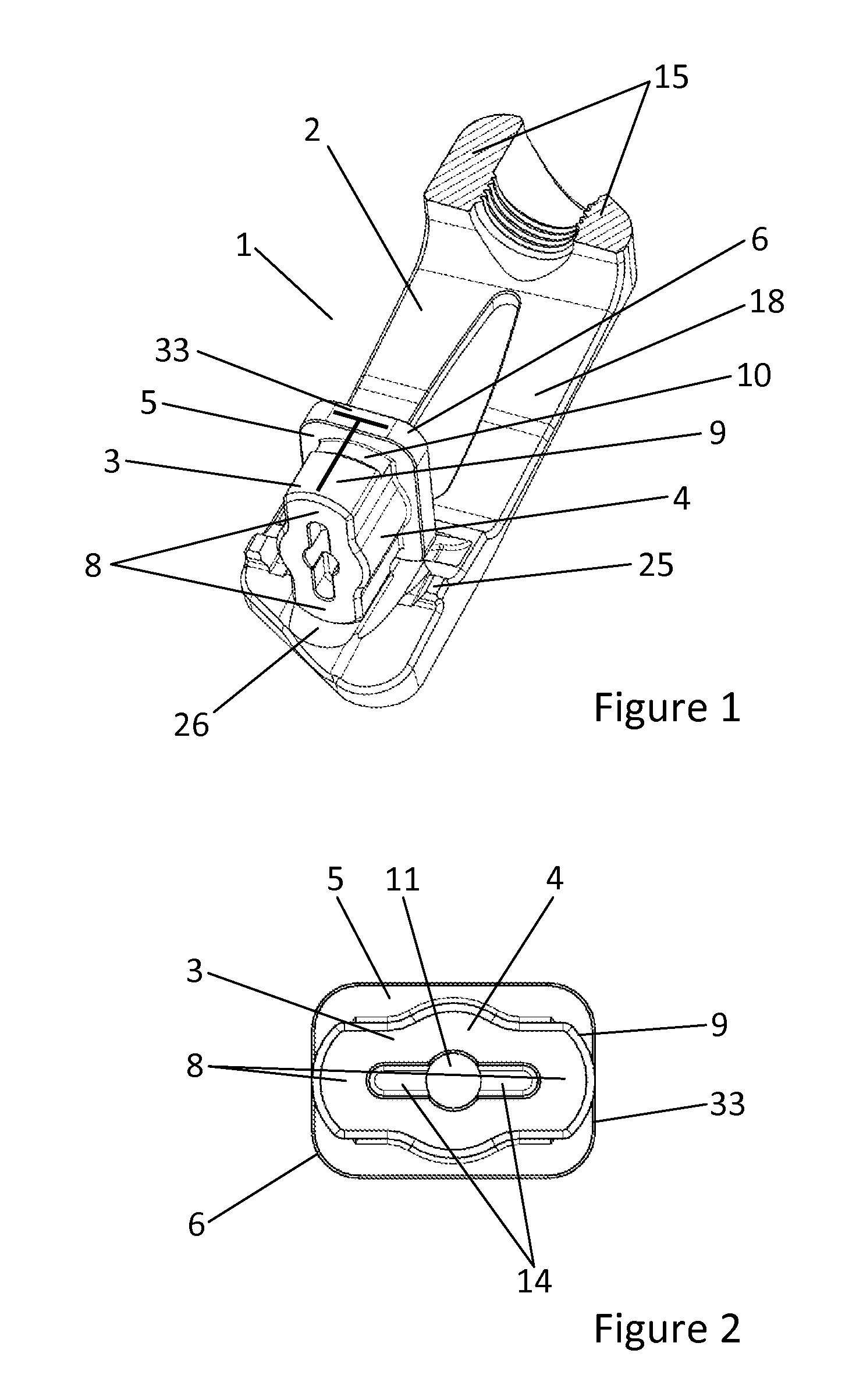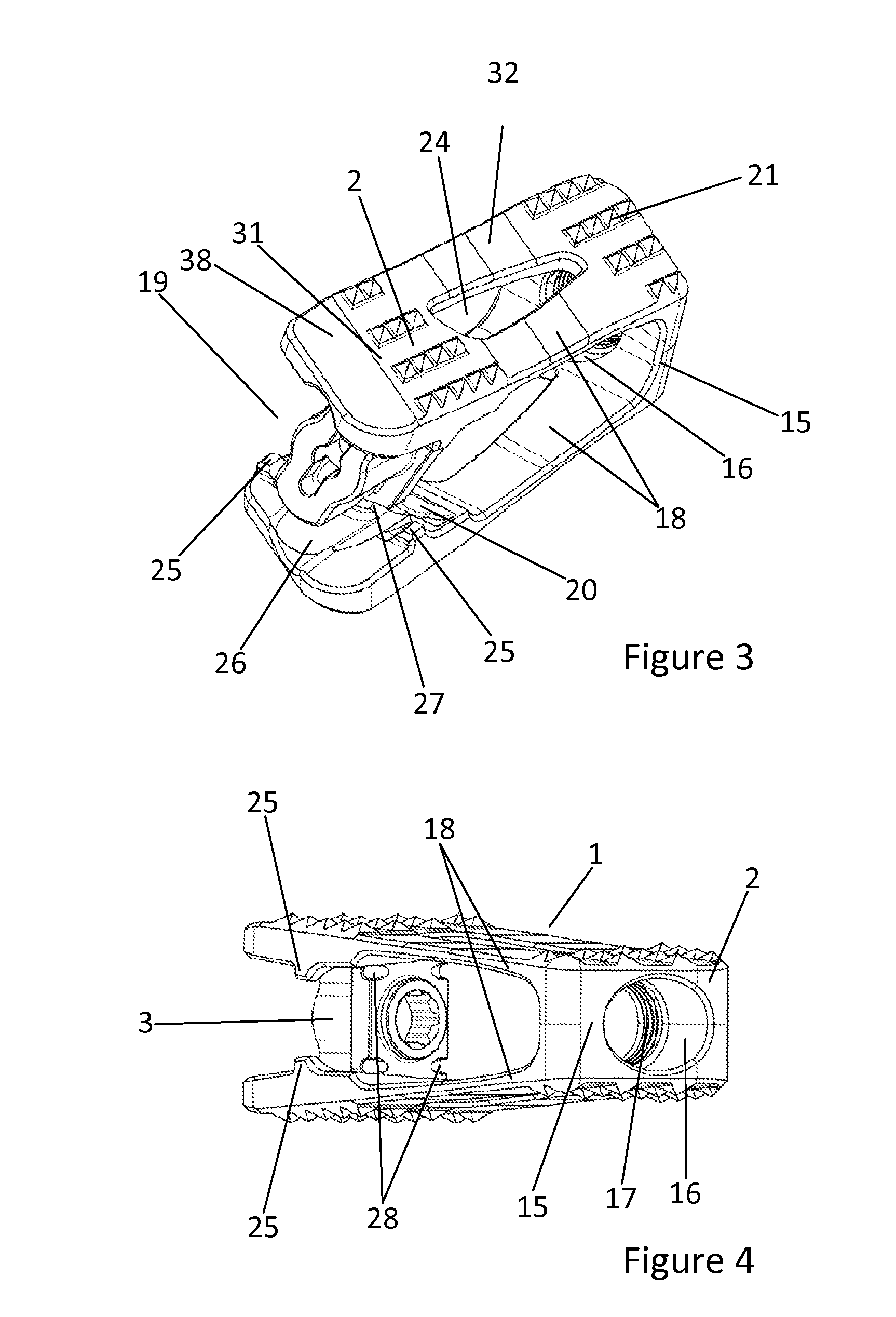Expandable Cage for the Intercorporal Fusion of Lumbar Vertebrae
a cage and lumbar vertebrae technology, applied in the field of spine surgery, can solve the problems of difficult to clearly control the degree of expansion achieved and monitor, and the need for the spacer to be placed, and achieve the effect of reducing the risk of fractur
- Summary
- Abstract
- Description
- Claims
- Application Information
AI Technical Summary
Benefits of technology
Problems solved by technology
Method used
Image
Examples
Embodiment Construction
[0043]FIG. 1 shows a horizontal medial longitudinal section through the monolithic main body (2) of a cage (1) according to the invention, with an expansion element (3) inserted in an expanded position on the lower arm (18). The expansion element (3) has a rotatable elongated cylindrical base body (4) on the rear end of which a rectangular plate (5) having rounded edges (6) extending in the longitudinal direction of the cage (1) is integrally formed in one piece. Two one-piece opposing ribs (8), whereof the respective radial bearing surfaces (9) terminate at the shorter narrow sides (33) of the rectangular plate (5), are constructed from the plate (5) as far as the front end of the base body (4) of the expansion element (3). The width of the ribs (8) almost reaches the diameter of the cylindrical base body (4). Respective rectangular grooves (10) are incorporated in the ribs (8) so that they extend parallel to the shorter narrow side (33) of the rectangular plate (5) and a lateral s...
PUM
 Login to View More
Login to View More Abstract
Description
Claims
Application Information
 Login to View More
Login to View More - R&D
- Intellectual Property
- Life Sciences
- Materials
- Tech Scout
- Unparalleled Data Quality
- Higher Quality Content
- 60% Fewer Hallucinations
Browse by: Latest US Patents, China's latest patents, Technical Efficacy Thesaurus, Application Domain, Technology Topic, Popular Technical Reports.
© 2025 PatSnap. All rights reserved.Legal|Privacy policy|Modern Slavery Act Transparency Statement|Sitemap|About US| Contact US: help@patsnap.com



